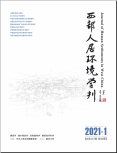西部人居环境学刊2024,Vol.39Issue(1):22-29,8.DOI:10.13791/j.cnki.hsfwest.20240104
单位社区更新对个体社会资本的影响研究
The impact of the Danwei Community renewal on individual social capital:A case study of B Community in City T
摘要
Abstract
Community renewal,as small-scale urban revitalization tightly intertwined with residents'daily lives,constitutes a vital task in the process of new urbanization.In response to the increasing critique of community renewal only focus on the dimension of physical space,emphasizing the attention to the socio-economic dimension,based on theories of social capital,this paper selected the Danwei community B in City T as the research object,and firstly conducted the dynamic analytical framework of individual social capital changes before and after the renewal of Danwei community.Subsequently,a mixed-methods approach,which integrating quantitative and qualitative research methods,was applied to community B for verification.The quantitative results show that individual social capital is affected by community renewal and shows an overall downward trend.And the residents are the most strongly affected,followed by community staff and tenants.Through qualitative analysis,this study identified mechanisms of differential impact of community renewal on individual social capital.For residents,the dissolution of the public space that carries life memories is followed by the gradual decline of social network and social interaction.Therefore,residents did not effectively improve their satisfaction through community renewal,but rather reduced their satisfaction and sense of security to varying degrees due to the"loss"of the original neighborhood relationships and social interactions.From the perspective of tenants,who are essentially separated from the community residents,their social interactions with community staff are relatively weak but stable,overall,tenants have a relatively low stock of social capital,and the renewal had no substantial impact on their social networks and interactions.In terms of community staff,the built environment of a community is both a living environment and work environment,and renewal not only brings about a significant increase in population size and heterogeneity,but also increases the population mobility,leading to a more complex living environment and increasing the difficulty of community governance.Nevertheless,due to the embedded nature of social networks within community organizations,the social connections of community staff remain closed and maintain relatively stable relationships,making them less affected by community renewal. Comparative analysis of the mechanisms influencing the social capital of individuals from different social groups in the community shows that the change of built environment is a direct influence factor.Among them,residents'individual social capital is mainly affected by the internal built environment of the community,while tenants and community staff are more concerned with changes in the external built environment,thus,the built environment is a common cause of the Danwei community renewal affecting individual social capital.Then,community perception is the most powerful factor to explain the change of individual social capital.The community perception of residents,tenants and community staff are all affected by community renewal,but the impact on residents is the strongest.Social networks and social interaction are the key factors that lead to differentiated impact on individual social capita.At last,the degree of attention of different groups to different explanatory factors before and after the renewal of community B largely depends on the possession of a certain stock of individual social capital before the renewal.This suggests that social capital is not permanent,fixed,and is prone to change with the community environment.It is imperative to pay special attention to the impact of built environment changes on individual social capital during the Danwei community renewal. Several implications are provided to the Danwei community renewal.Firstly,the built environment and the shifts in community perception induced by the renewal process serves as the primary drivers of changes in individual social capital.Therefore,the renewal of the Danwei community in China needs to break the limitation of the previous focus on the renewal of physical space and begins to focus on the impact of the change of built environment on individual social capital.Second,based on the micro-individual perspective,the changes of social network and social interaction have significant explanatory significance on the differentiated impact of individual social capital of different groups in one community,which also implies that the renewal of the Danwei community is not only a physical transformation of community space.Rather,it is also the reconstruction of social networks,involving multiple stakeholders and various types of relationships.Focusing on the relative changes in physical space and social space during the Danwei community renewal process is a crucial breakthrough for effectively avoiding social conflicts.关键词
社区更新/个体社会资本/单位制/影响机制/混合研究Key words
community renewal/individual social capital/danwei system/influence mechanism/mixed research分类
建筑与水利引用本文复制引用
李悦,李雪伟..单位社区更新对个体社会资本的影响研究[J].西部人居环境学刊,2024,39(1):22-29,8.基金项目
国家自然科学基金面上项目(72274197) (72274197)

